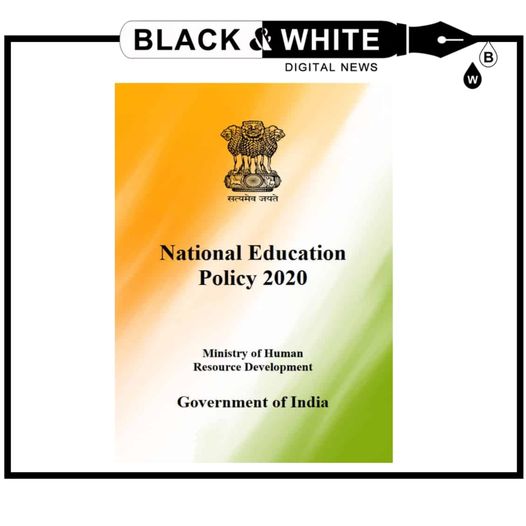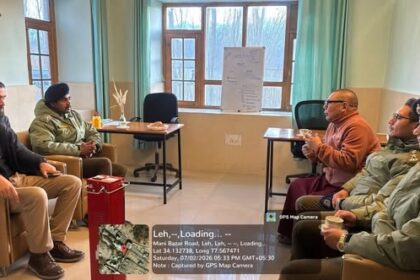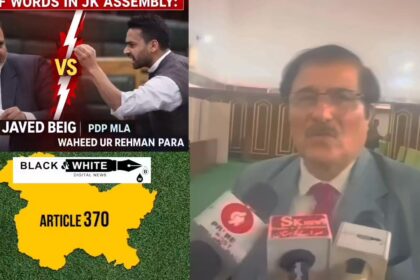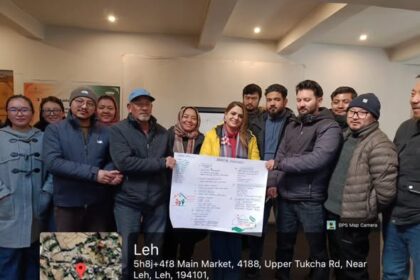Revamping Education in J&K :A Nine-Member PaneltoSpearheadNEP-2020Implementation.
||Black and White Digital News||
||Tejveer Singh May 19, 2024 ||
In a significant move aimed at revolutionizing the education landscape in Jammu and Kashmir, a nine-member panel has been constituted to review and analyze the National Education Policy (NEP)-2020 and its implementation across the Union Territory. This initiative is a vital step towards aligning the educational framework of J&K with the progressive recommendations of the NEP-2020, which envisions a transformative shift in India’s education system.
The panel, comprising senior officers and officials from the School Education Department (SED), is tasked with drafting and continuously updating a status document that tracks the implementation of NEP-2020. Under the supervision of the Project Director of Samagra Shiksha, J&K, and the UT-level Nodal Officer for NEP-2020 implementation, the committee will develop a detailed action plan. This plan will include specific timelines and milestones to ensure that the objectives of NEP-2020 are met effectively and efficiently.
**A Multi-faceted Approach to Education Reform**
The nine-member committee includes distinguished educators and administrators: Suraj Singh Rathore (Joint Secretary, JKBOSE), Sindhu Kapoor (Joint Director, SCERT, J&K), Javid Ahmad Banday (in-charge Principal, BHSS Beerwah, Budgam), Deepak Sharma (Principal, HSS Binoon, Kishtwar), Arshid Hussain Zargar (Lecturer Electronics, HSS Hiller Anantnag), Ruheed Gul Baldev (in-charge Lecturer Botany, HSS Wanpoh, Anantnag), Jawaz Iqbal (Teacher, HS Bhartund, Batote, Ramban), Alka Sharma (Teacher, HS City Chowk, Jammu), and Sohail Wani (Teacher, HSS Jodhpur, Doda).
The Director of Planning in the SED will oversee the monthly progress at the administrative level, ensuring that the panel’s efforts are in line with the NEP indicators. The committee is also responsible for establishing mechanisms for monitoring progress and evaluating the effectiveness of implementation efforts. This includes identifying capacity-building needs and initiatives to support the successful rollout of NEP-2020.
**Stakeholder Engagement and Policy Advocacy**
One of the key mandates of the committee, as specified by SED Administrative Secretary Dr. Piyush Singla, is to facilitate engagement with a broad spectrum of stakeholders. This includes government agencies, educational institutions, civil society organizations, and experts in the field of education. By fostering these collaborations, the committee aims to advocate for necessary policy changes and reforms to align existing educational policies with the goals of NEP-2020.
The panel will maintain meticulous records of all activities, decisions, and outcomes, preparing periodic progress reports for submission to the relevant authorities. Furthermore, it will coordinate with other government departments and agencies involved in education-related initiatives to ensure synergy and prevent duplication of efforts.
**A Comparative Look at Education Policies**
The NEP-2020 marks a radical departure from previous education policies in India. The existing education policy in J&K, like many others, has traditionally focused on rote learning and standardized testing. In contrast, NEP-2020 advocates for a more holistic, flexible, and multidisciplinary approach to education, aiming to develop critical thinking, creativity, and problem-solving skills among students.
The NEP-2020 emphasizes early childhood care and education, a shift to a 5+3+3+4 curriculum structure, and the incorporation of vocational education from an early age. It also seeks to promote regional languages and a reduction in the curriculum to enhance essential learning and critical thinking. This is a stark contrast to the current system, which often emphasizes memorization over comprehension and critical analysis.
The newly constituted panel in J&K is expected to play a pivotal role in bridging the gap between the current educational framework and the ambitious vision set forth by NEP-2020. By ensuring that the implementation of NEP-2020 is well-coordinated and effectively monitored, the panel aims to usher in an era of educational excellence and equity in Jammu and Kashmir.
**Conclusion**
The formation of this nine-member panel is a promising development in the journey towards educational reform in J&K. As the panel embarks on this crucial task, the stakeholders and the community at large are hopeful that the NEP-2020 will bring about meaningful changes, preparing students in J&K to meet the challenges of the 21st century with confidence and competence.









